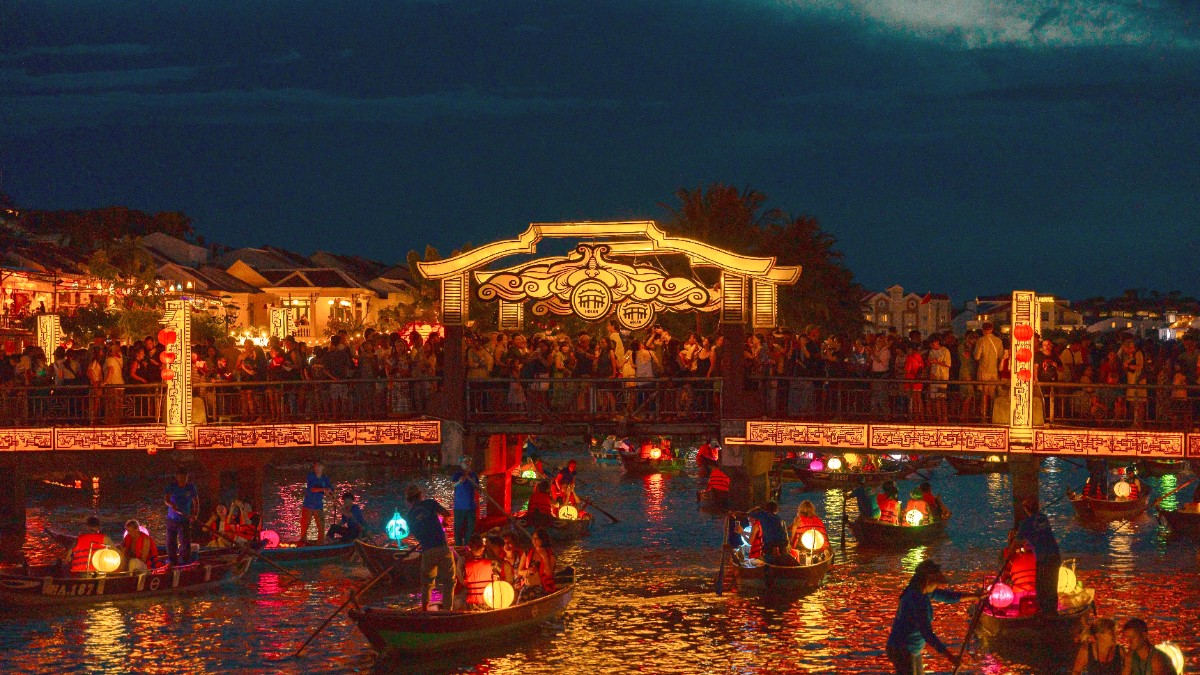
Central Vietnam, Vietnam
Viettel, Mobifone, and Vinaphone are the main mobile providers. Viettel has broad coverage, especially in rural areas. Purchase SIM cards at Da Nang International Airport or local shops. Your passport is needed for registration. Tourist SIMs with data packages are inexpensive, usually 100,000-200,000 VND.
Wi-Fi is widely available and free at most hotels, guesthouses, restaurants, and cafes. Mobile data coverage is extensive. Hoi An Post Office provides services for sending postcards and parcels.
Vietnamese is the official language. English is common in tourist areas. It is less frequent in local markets or rural settings. Google Translate with offline language packs is a valuable tool.
Familiarize yourself with Vietnamese Dong banknotes for smooth purchases. They have many zeroes!
Navigate Hoi An's rhythm with typical operating hours for various services.
Shops and restaurants generally open from 8:00 AM or 9:00 AM to late evening, typically 9:00 PM - 10:00 PM. Some stay open later.
Markets open early morning, around 6:00 AM, until late afternoon or evening. The Night Market opens from around 5:00 PM until late.
Attractions within the Ancient Town typically open from 7:00 AM to 5:30 PM.
Banks operate Monday to Friday, from 8:00 AM - 11:30 AM and 1:00 PM - 4:30 PM. ATMs are widely available throughout Hoi An.
Tet (Lunar New Year) is the most important holiday. Many businesses close for several days to a week. Transportation may be crowded. Other public holidays may lead to bank closures and increased domestic tourism.
During the wet or typhoon season, from September to November, some outdoor activities may adjust schedules.
Embrace local customs for a respectful and enriched experience in Hoi An.
A simple "Xin chào" is welcome. A slight bow or nod is polite, especially to elders. Use two hands when giving or receiving items. Modest dress is preferred.
Wait for elders or hosts to sit first. Use chopsticks respectfully. Tipping is not mandatory but welcomed. Generally, it is acceptable to photograph public places.
Avoid discussion of Vietnamese politics or the Vietnam War with strangers. Do not point your feet at people or religious images. Do not touch someone's head. Keep public displays of affection to a minimum.
Do not throw money or give it with your left hand. Bargain politely and with a smile at markets.
Engaging with local customs creates memorable and authentic experiences.
Hoi An presents certain challenges for travelers with mobility needs due to its historical infrastructure.
Hoi An's Ancient Town presents challenges for those with mobility needs. It features cobblestone streets, uneven sidewalks, many steps, and narrow passages. Many traditional buildings are multi-story without elevators.
Newer hotels and resorts may offer better accessibility. Private car services are the most practical option for accessible transport. Public buses are not accessible.
Specific services are limited for travelers with visual or hearing impairments. Travel with a companion or join specialized tours.
Online forums and travel blogs focusing on accessible travel in Southeast Asia may share specific insights from other travelers.
Look for hotels with stated accessibility features.
Verify accessible transport options before travel.
Explore tour operators catering to specific needs.
Pre-planning your visit with accessibility in mind will greatly influence your travel experience.